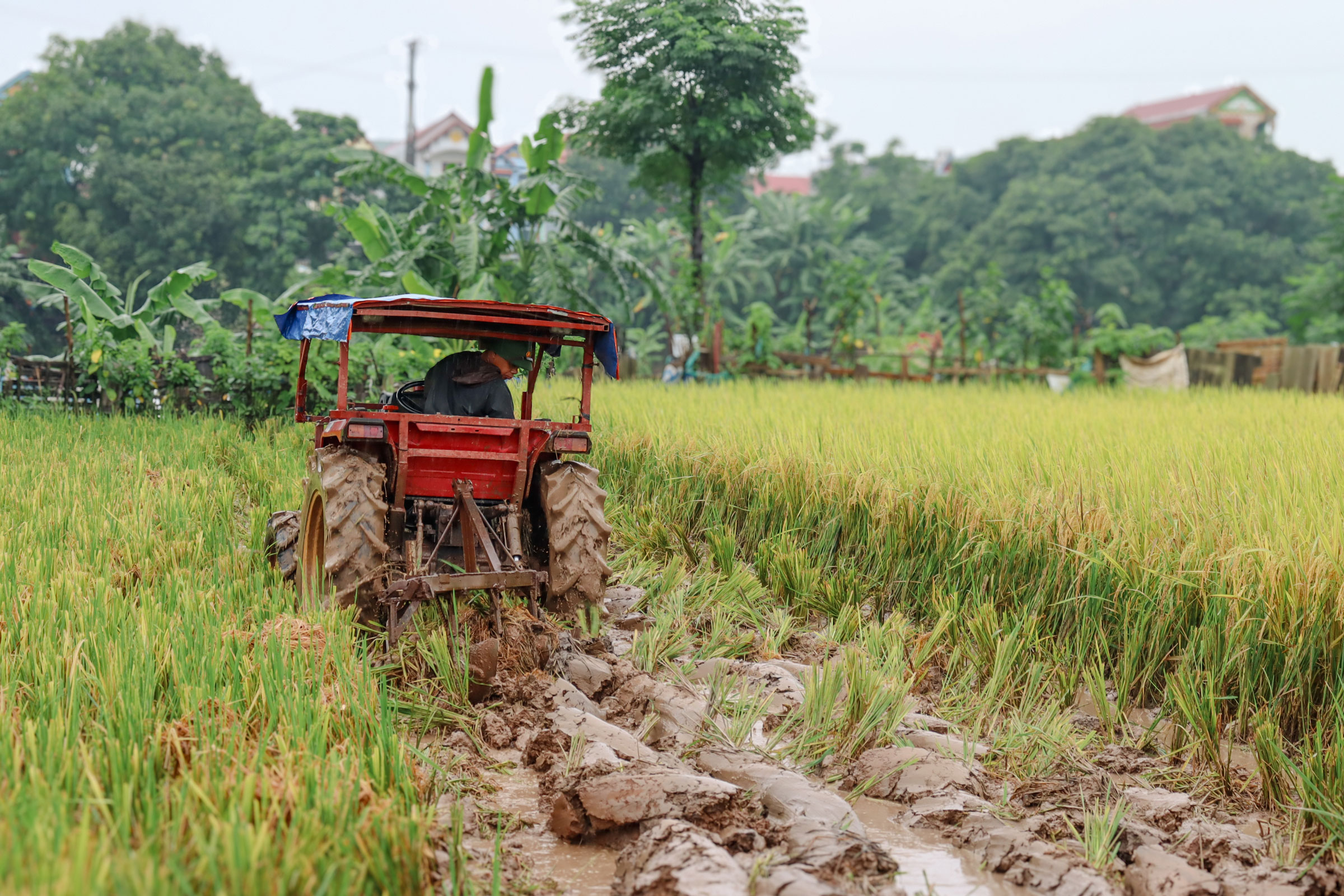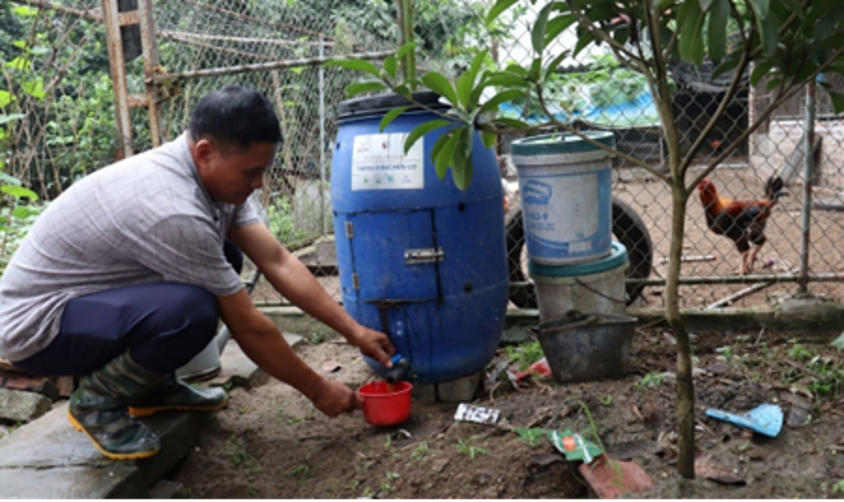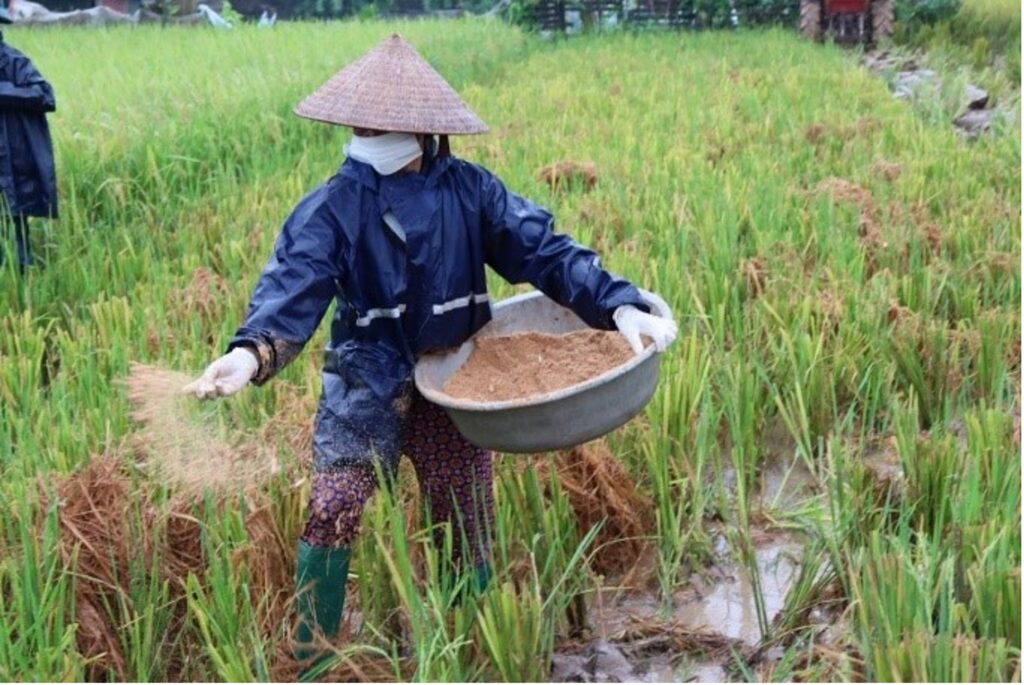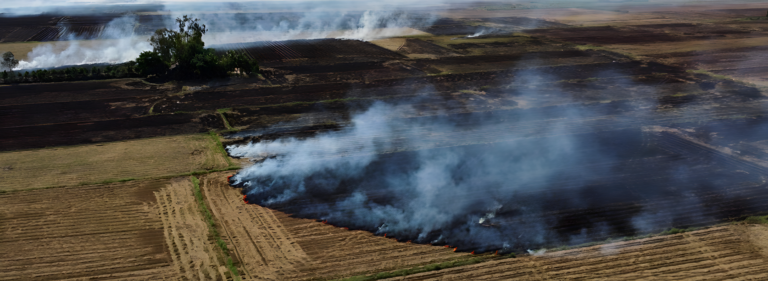
Community partnerships and action to reduce pollution from open burning in Vietnam
Open burning, both of household waste and agricultural straw, is a major source of air pollution in rural and urban Vietnam, contributing to deteriorating air quality and increasing public health risks. To tackle this pressing issue, the USAID Reducing Pollution project, implemented by Winrock International, is supporting community-driven solutions aimed at reducing open burning and promoting sustainable waste management practices in the Red River Delta. One of the project’s backbone organizations (close local partners), the Centre for Environment and Community Development, is also working intensively on the issue. In collaboration with local authorities, CeCoD is now rolling out pilot programs in Hai Duong province and Hanoi that focus on waste classification and sustainable straw treatment practices, with the goal of reducing and repurposing wastes as an alternative to incineration.
Household waste management in Thanh Hai commune
With 4,000 households including nearly 14,000 residents, Thanh Hai commune in Hai Duong province generates around eight tons of solid waste daily, of which about two-thirds is organic waste. Despite legal requirements under Vietnam’s Law on Environmental Protection 2020, which specifies that households must classify and sort wastes by 2024, mixed waste disposal remains common practice, leading to uncontrolled open burning at waste landfills. To address this issue, in January 2024, CECoD and the Hai Duong Department of Natural Resources and Environment launched a pilot waste classification and composting program in Tien Vy village.
Two hundred households received composting bins and microbial powder to turn organic waste into fertilizer. By June 2024, the project successfully diverted over 36 tons of organic waste from landfills, producing nutrient-rich compost instead. Participating households also learned to collect and clean low-value plastic waste, which is transported to recycling facilities. By July 2024, over 400 kilograms of such waste had been collected and sent to a local recycling company. Nguyen The Dzung, a villager, shared: “With the compost bin, our waste has decreased, and now we have natural fertilizer for our garden.” His family now processes 3-5 kg of organic waste daily, reducing waste and saving on fertilizer costs.

A new aspect of this initiative is the collection and processing of low-value recyclable waste, such as plastic bags and candy wrappers. Households now collect and sort these items, then transport them to designated collection points. This waste is collected by the Center for Environmental Technology and Protection, another local project partner, and sent to recycling units, reducing landfill pressure and improving environmental protection. By July 2024, over 400 kg of this waste had been collected and sent to Seraphin Waste Treatment Company for processing.
The initiative has garnered strong local support, with Pham Khac Tao, Deputy Chair of the Thanh Hai People’s Committee, noting that the pilot could be scaled across the commune.
“Waste sorting at source has effectively helped protect the environment and created economic benefits for residents. We are planning to expand this model throughout the entire commune,” Tao said.
Reducing straw burning in the Red River Delta
In addition to household waste, straw burning remains a widespread practice in the Red River Delta, contributing to soil degradation, harmful air pollution, and even traffic hazards. Farmers often burn agricultural residues such as rice straw, stubble, and other organic materials after harvest as a quick and cheap way to clear fields. Air pollution from this practice has become a huge problem in the densely populated delta, as well as other parts of the country. In response, CECoD introduced an alternative solution in Kim Xuyen commune, Hai Duong and Xuan Thu commune, Hanoi, that encourages farmers to use microbial products to decompose post-harvest straws.
After overcoming some initial challenges, around 900 households across the two communes ultimately registered to participate, treating 200 hectares of rice fields with microbial powder. By June 2024, all pilot fields had been treated, demonstrating improved soil conditions and reduced methane emissions. Farmers like Bui Thi Nu noted significant improvements, with her rice growing well without additional fertilizer just days after planting.

“The field feels very soft when walking on it; previously, I had to remove stubbles by hand, and it smelled bad. Now I plant with ease and don’t smell anything,” she remarked.
So far, an estimated 1,400 tons of straw were spared from burning, reducing nearly 11 tons of PM2.5 (particles smaller than 2.5 microns in diameter), a dust so fine that it can get stuck in respiratory systems, increasing the risk of respiratory-related diseases such as asthma, pneumonia and bronchitis. The initiative has already had a ripple effect, with reductions in straw burning reported in neighboring areas. The pilot’s success is expected to lead to expansion of this model to other districts in Hai Duong and Hanoi in the upcoming harvest seasons.
A collective impact approach to reducing air pollution
By combining efforts to manage both household waste and agricultural residues, the USAID Reducing Pollution project is fostering sustainable community behavior change. Through a combination of education, technical support, and collaboration with local stakeholders, this initiative is helping to reduce open burning — a critical step in improving air quality and protecting public health across Vietnam.
Related Projects

